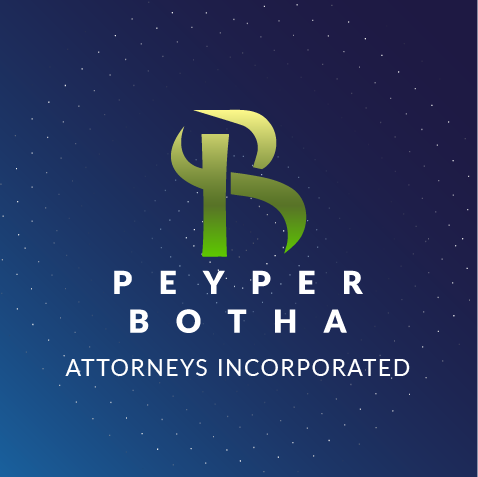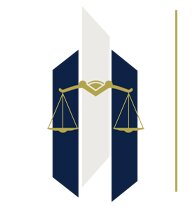Best Water Law Lawyers in Bloemfontein
Share your needs with us, get contacted by law firms.
Free. Takes 2 min.
List of the best lawyers in Bloemfontein, South Africa
About Water Law in Bloemfontein, South Africa
Water law in Bloemfontein forms part of the broader South African water management system, with significant influence from national legislation. The National Water Act (Act 36 of 1998) is the cornerstone of water governance, regulating how water resources are allocated, protected, and managed across the country, including Bloemfontein. This legal framework ensures equitable access to water, emphasizes sustainable usage, and protects water quality for the benefit of all citizens. In Bloemfontein, water law is crucial due to the region's semi-arid climate, reliance on the Modder River system, and periodic drought conditions. Municipal by-laws and regional policies also play a significant role in how water is distributed, used, and conserved locally.
Why You May Need a Lawyer
Legal assistance in water law may be required in a range of scenarios. Common reasons residents and businesses in Bloemfontein seek a lawyer include disputes over water rights, compliance with local and national water usage regulations, navigating permit or license applications, land use and development near water sources, water pollution incidents, and challenges relating to drought management or water restrictions. A lawyer experienced in water law can help interpret complex regulations, represent clients in negotiations or litigation, and ensure compliance with ever-changing legal requirements. Additionally, water law specialists can assist with drafting or challenging municipal by-laws and engaging with government entities responsible for water management.
Local Laws Overview
The application of water law in Bloemfontein is shaped by national and municipal legal instruments. Key national acts include the National Water Act and the Water Services Act, which regulate water resource protection, the issuing of water use licenses, and service provision. The Mangaung Metropolitan Municipality, encompassing Bloemfontein, has its own water-related by-laws that address water supply, usage restrictions, waste water management, and billing procedures. These local laws set out obligations for residents and businesses concerning water conservation, enforce limits during droughts, control pollution, and manage connections to the municipal water network. Enforcement is typically handled by the local municipality, while the Department of Water and Sanitation oversees strategic water governance.
Frequently Asked Questions
What does water law regulate in Bloemfontein?
Water law in Bloemfontein covers issues such as water usage rights, the allocation and distribution of water, pollution control, licensing, and the legal duties of individuals and businesses relating to water resources.
Who owns the water in South Africa?
All water resources in South Africa are publicly owned on behalf of the people and are managed by the state to ensure fair and equitable usage.
Do I need a license to use water from rivers or boreholes?
Yes, most non-domestic uses of river or groundwater require a water use license from the Department of Water and Sanitation, especially for commercial, agricultural, or large-scale use.
What should I do if I have a dispute over water rights?
It is recommended to consult with a lawyer experienced in water law to assess your rights and obligations before taking any legal steps or engaging in negotiations.
Can a municipality restrict my water usage during droughts?
Yes, municipalities such as Mangaung have the authority to impose water restrictions during times of drought or water scarcity. These restrictions are legally enforceable.
How is water quality monitored and who is responsible for pollution control?
Water quality is monitored by local municipalities in cooperation with the Department of Water and Sanitation. Both individuals and businesses are legally required to avoid polluting water sources.
What legal remedies are available for water pollution victims?
Victims of water pollution can pursue damages or injunctions through legal action against polluters. A lawyer can advise on preparing a case and may facilitate negotiations with relevant authorities.
Are there penalties for illegal water usage?
Yes, unauthorized water use or tampering with municipal infrastructure can result in fines, legal action, and possibly criminal charges.
Who is responsible for water supply infrastructure in Bloemfontein?
The Mangaung Metropolitan Municipality is primarily responsible for water supply infrastructure and service delivery in Bloemfontein.
What steps can I take to comply with local water by-laws?
Comply by following water restrictions, ensuring proper maintenance of private water infrastructure, avoiding illegal connections, and using water-saving technologies. For further guidance, consult municipal notices or seek legal advice.
Additional Resources
For reliable information and assistance on water law matters in Bloemfontein, consider the following resources:
- Department of Water and Sanitation (national regulatory body overseeing water governance) - Mangaung Metropolitan Municipality (local by-laws and water services) - Legal Aid South Africa (providing free or affordable legal assistance to qualifying individuals) - Water Research Commission (for research and policy information) - Local universities or law societies specializing in environmental and water law - South African Human Rights Commission (for water-related rights queries)
Next Steps
If you believe you need legal assistance with a water law matter in Bloemfontein, begin by gathering all relevant documentation or evidence relating to your issue, such as municipal correspondence, water bills, license applications, or notices of restriction. Consider consulting a lawyer with expertise in water law to assess your situation, explain your legal options, and assist with negotiation, mediation, or court proceedings if necessary. Reach out to local legal clinics or Legal Aid South Africa if you require affordable services. Stay informed by regularly checking updates from your municipality and relevant government departments regarding water usage policies and regulations.
Lawzana helps you find the best lawyers and law firms in Bloemfontein through a curated and pre-screened list of qualified legal professionals. Our platform offers rankings and detailed profiles of attorneys and law firms, allowing you to compare based on practice areas, including Water Law, experience, and client feedback.
Each profile includes a description of the firm's areas of practice, client reviews, team members and partners, year of establishment, spoken languages, office locations, contact information, social media presence, and any published articles or resources. Most firms on our platform speak English and are experienced in both local and international legal matters.
Get a quote from top-rated law firms in Bloemfontein, South Africa — quickly, securely, and without unnecessary hassle.
Disclaimer:
The information provided on this page is for general informational purposes only and does not constitute legal advice. While we strive to ensure the accuracy and relevance of the content, legal information may change over time, and interpretations of the law can vary. You should always consult with a qualified legal professional for advice specific to your situation.
We disclaim all liability for actions taken or not taken based on the content of this page. If you believe any information is incorrect or outdated, please contact us, and we will review and update it where appropriate.











